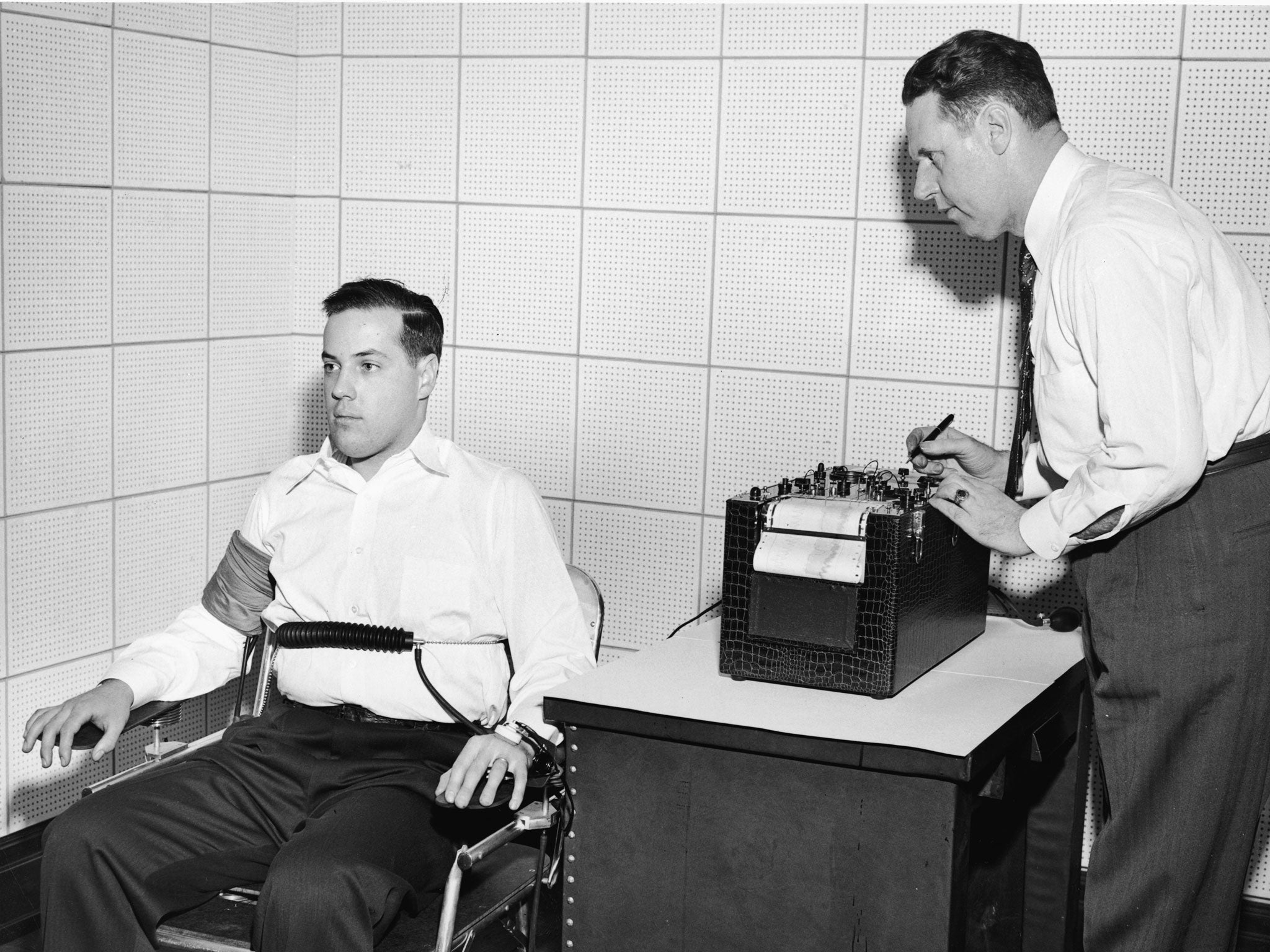Britain's hostility to lie detector tests 'misguided and irrational', says leading psychologist
Critics claim polygraphs are scientifically flawed and inaccurate

Widespread use of polygraph tests should be adopted to better protect children and other victims from sex abusers, a leading forensic psychiatrist claims.
The UK’s failure to use polygraph, or so-called lie-detector tests, is “misguided and irrational” and putting children at risk, he claims.
Professor Don Grubin, who has helped train British police and probation officers as part of Ministry of Justice trials to monitor and assess suspected paedophiles, says the tests help better identify high-risk sex offenders. He also believes the test has an important role in aiding police investigations into other crimes.
Professor Grubin, of Newcastle University, says the police and criminal justice system could reap enormous benefits if it can overcome the image of polygraphs used on daytime television such as The Jeremy Kyle Show to trap lying spouses having affairs.
“Polygraph testing is something everyone thinks they know about because they see it on crime shows and daytime TV but there are lots of aspects which are simply misunderstood or misconstrued,” said Professor Grubin.

Frequently referred to as a lie detector, the polygraph does not actually recognise lies. Instead it records activity in the “autonomic” nervous system of those undergoing the tests. That nervous system – said to be largely outside our conscious control – reveals a stress reaction which can be measured by skilled examiners.
Critics claim the system is scientifically flawed, has low levels of accuracy, is open to abuse and can be easily defeated by countermeasures. But police and other law enforcement agencies in the US use it as investigative tool to rule out suspects from their inquiries, obtain a confession or to generate more lines of inquiry.
“There is a real reluctance to use it in investigations for reasons that I think are irrational,” Professor Grubin added. “If it is used as part of a thought-through strategy it helps you to eliminate suspects and gain numerous other leads.”
The academic says he is not advocating its use in court but as an investigative tool which can save police time and money.
The forensic psychiatrist has carried out a series of studies for the Justice Ministry examining the test’s effectiveness in better assessing the threat posed by sex offenders.
In the pilot schemes, the threat assessment on just over a third of men arrested for downloading child porn from the internet was increased after they underwent polygraph tests during which they made “significant new disclosures” about the extent of their offending. The tests, which were voluntary, were conducted after arrest and interview by police.
Professor Grubin has also conducted two major polygraph studies with the National Offender Management System, which were equally revealing.
The Ministry of Justice has adopted a policy of mandatory testing of offenders as a consequence of his studies.
In search of truth: The unreliable polygraph
By Steve Connor, Science Editor
Trying to figure out whether someone is lying or not is perhaps as old as human consciousness. People give off all kinds of physical signals – from deep breathing and dilated pupils to nervous tics and evasive behaviour – that other people take as evidence of untruthfulness.
Putting these physiological traits into a scientific context is what the polygraph is supposed to do. The trouble is that although the results from a polygraph are better than random chance, it fails to live up to the claims of its proponents, especially those in the US where it is used widely in criminal investigations and for screening employees.
A number of studies have exposed the inherent weaknesses of the polygraph. Nervous but honest interviewees can be wrongly labelled as liars, while inveterate liars using countermeasures such as deliberate conscious control over heartbeat can emerge from a polygraph interrogation unscathed.
The US National Academy of Sciences investigated the scientific rationale for using polygraphs more than a decade ago and found it lacking. Nearly 60 laboratory studies to test the accuracy of polygraphs found that even under these highly controlled conditions the machine performed “well below perfection”.
